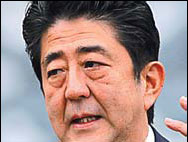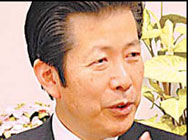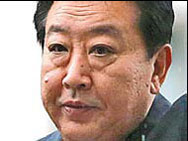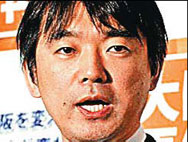|
 |
Established: 1955
2012 lower house election result: 294 out of 480 seats
The LDP returned to power after a three-year hiatus. Until the 2009 election, the party, which has nurtured close ties with business and the bureaucracy, had been in power alone or in coalitions almost non-stop since its founding in 1955.
LDP leader Abe, 58, was prime minister from 2006-2007. He has piled pressure on the central bank to ease monetary policy further and adopt a 2 percent inflation target and might delay the sales tax rise if deflation persists. The party favors a central role for nuclear power in Japan's energy mix despite a dramatic shift in public opinion in favor of phasing out atomic energy after the Fukushima crisis.
|
 |
Established: 1998
2012 result: 31 seats
The party, founded by members of the Soka Gakkai Buddhist sect, has been a junior partner in LDP-led governments for 10 years until the ruling camp's rout in a 2009 lower house election. The LDP confirmed the partnership with New Komeito that will give it a two-thirds majority in the lower house.
The New Komeito focuses on economic policies for the less well off and is more moderate on security issues than the LDP, opposing revision of the pacifist constitution, for example.
Natsuo Yamaguchi now serves as New Komeito's chief representative. He served as parliamentary vice-minister of the defense agency and has chaired New Komeito's policy research council, the party's top policymaking organ, since 2008.
|
 |
Established: 1998
2012 election result: 57
Formed in a merger of several opposition parties, the DPJ swept to power in 2009 to end more than half a century of almost unbroken LDP rule. After three years in power, Prime Minister Yoshihiko Noda's party was crushed and won fewer than a fifth of the seats it took in 2009, when it came to power promising to pay more heed to consumers than companies and pry control of policies from bureaucrats.
The Democrats' support slumped over what voters saw as broken promises, a confused response to last year's Fukushima tsunami and nuclear crisis and Noda's embrace of unpopular causes such as the tax hike and the restart of nuclear reactors.
Noda, 55, has announced he will step down as leader of the party.
|
 |
Established: 2012
2012 election result: 54
Popular Osaka Mayor Toru Hashimoto, 43, launched the right-leaning party in September to woo voters fed up with the two main parties. His core policies include shrinking the role of the central government, more market competition and cuts in corporate and income taxes.
Last month, the party merged with a few conservative lawmakers led by former nationalist Tokyo Governor Shintaro Ishihara, 80, in a bid to build an influential "third force".
The party wants to boost defense spending and maritime surveillance in response to a territorial row with China.
It has flip-flopped on nuclear power after merging with Ishihara's pro-atomic group, and confusion persists.
Reuters